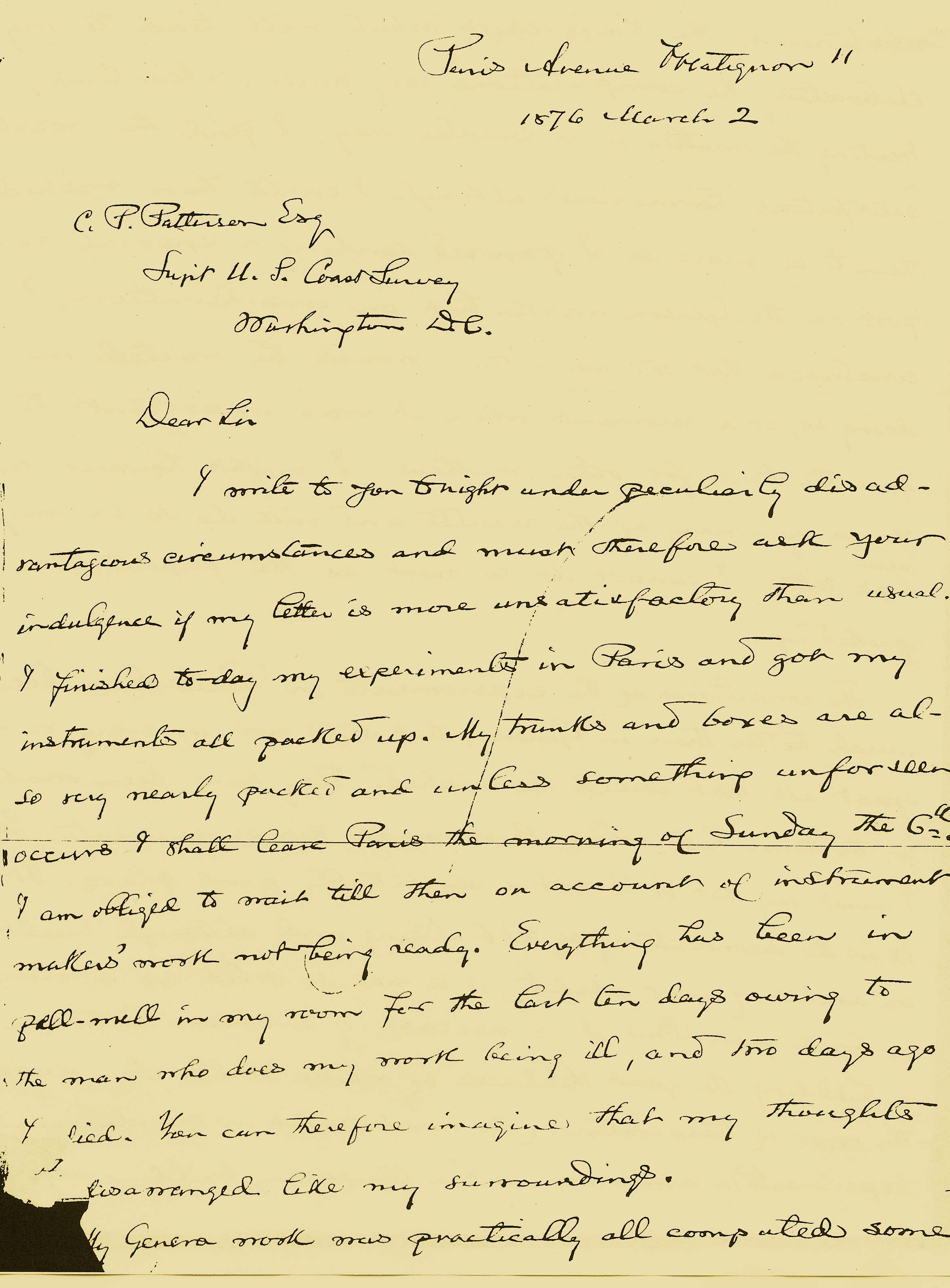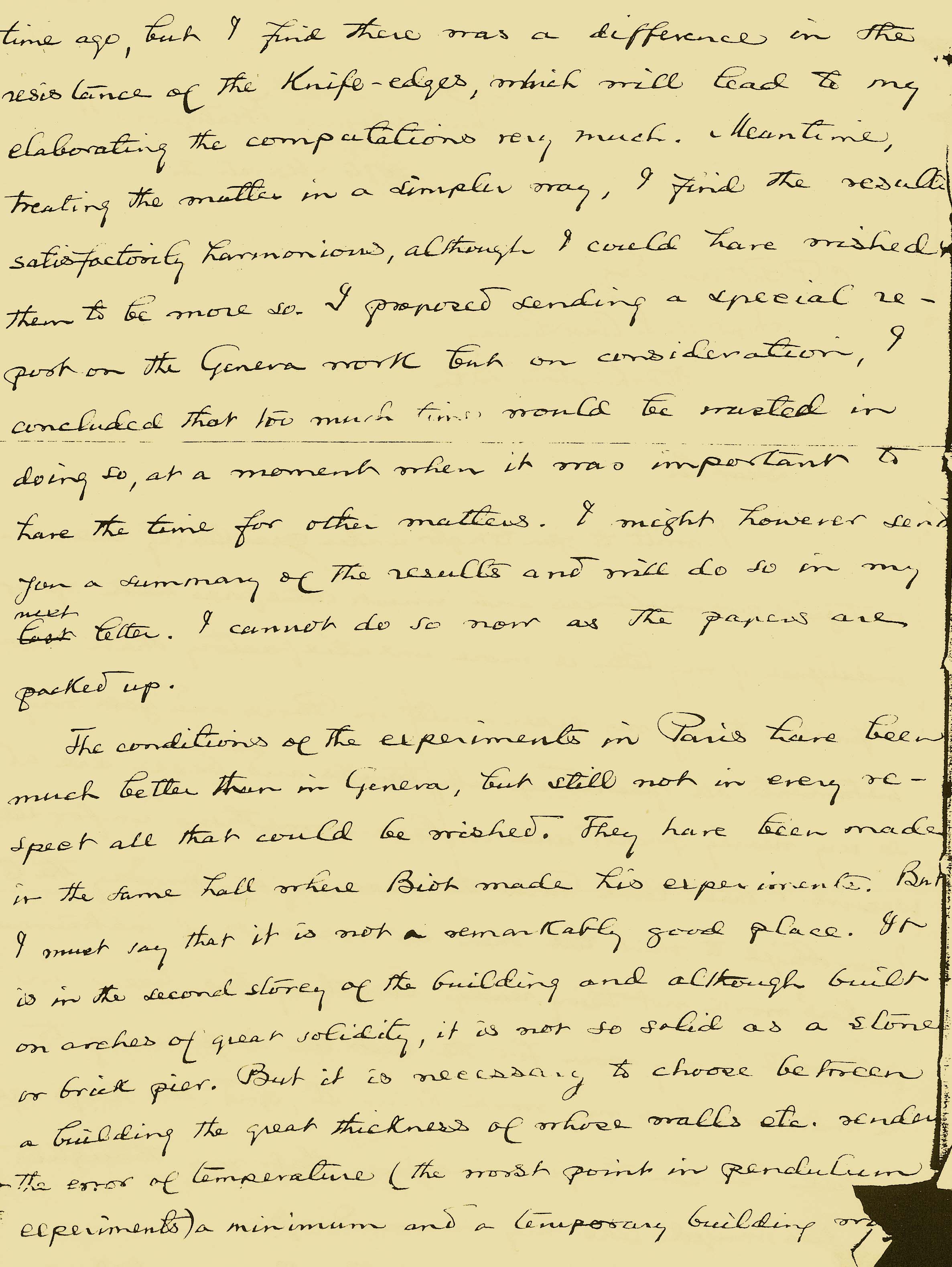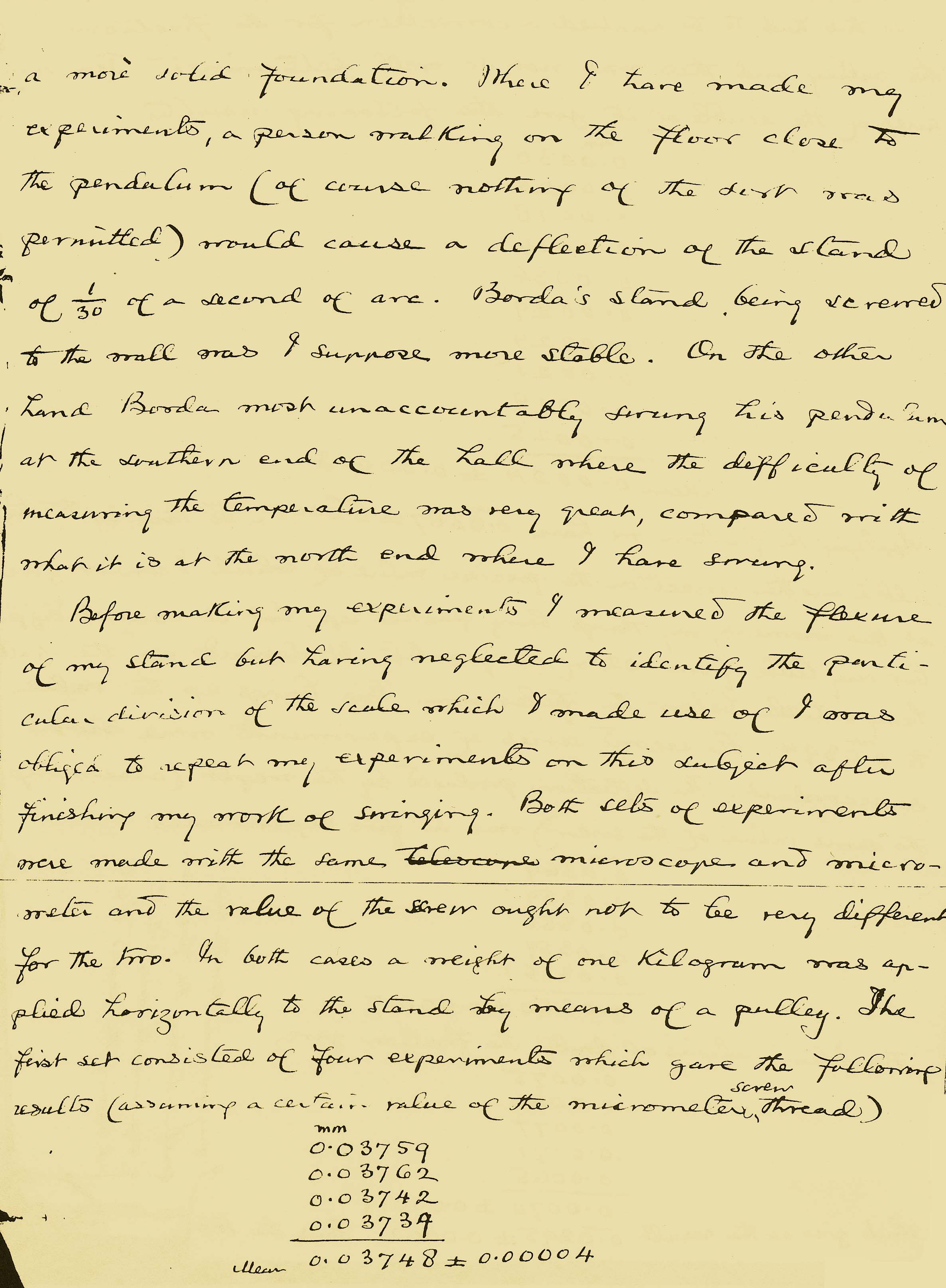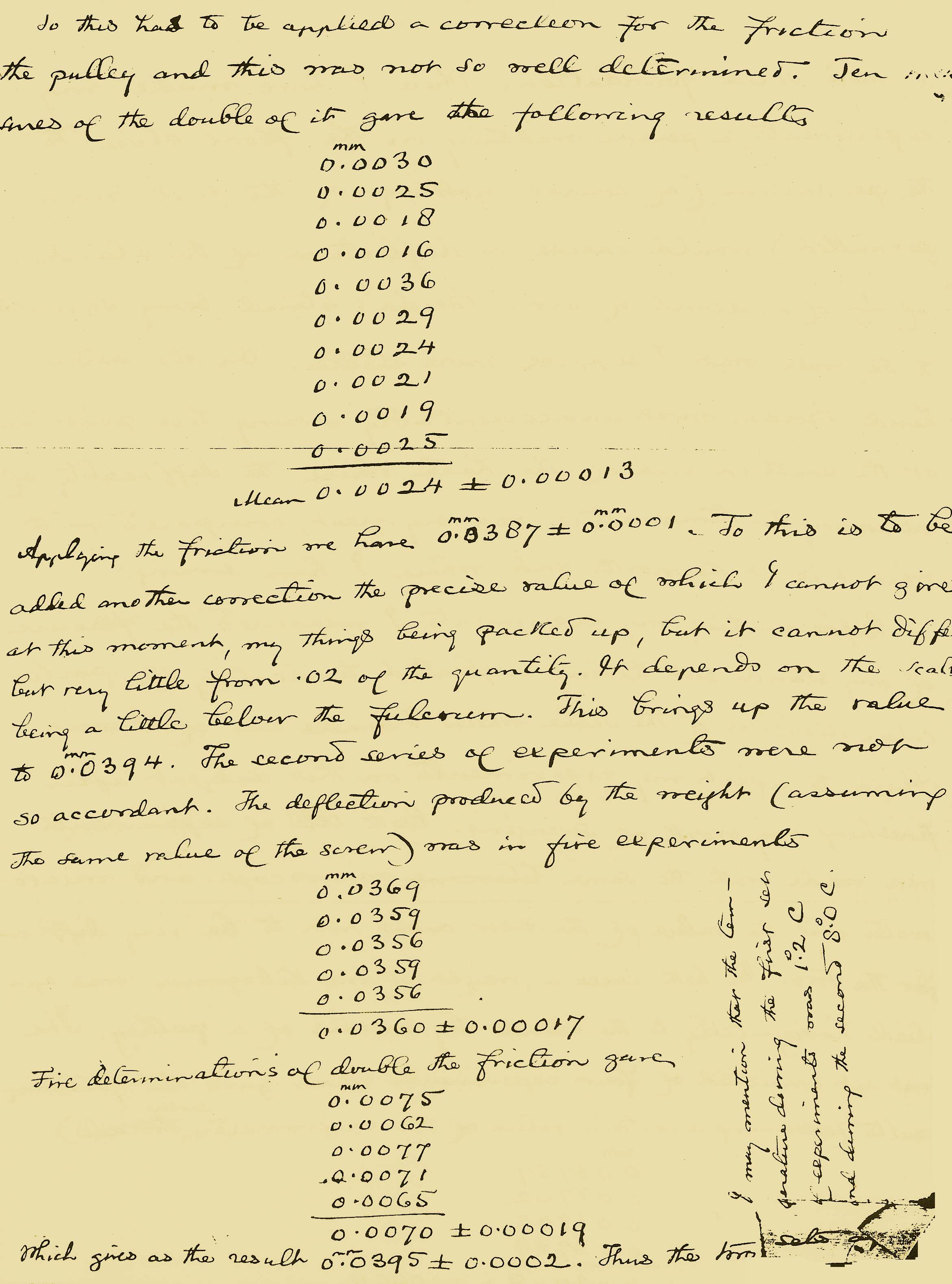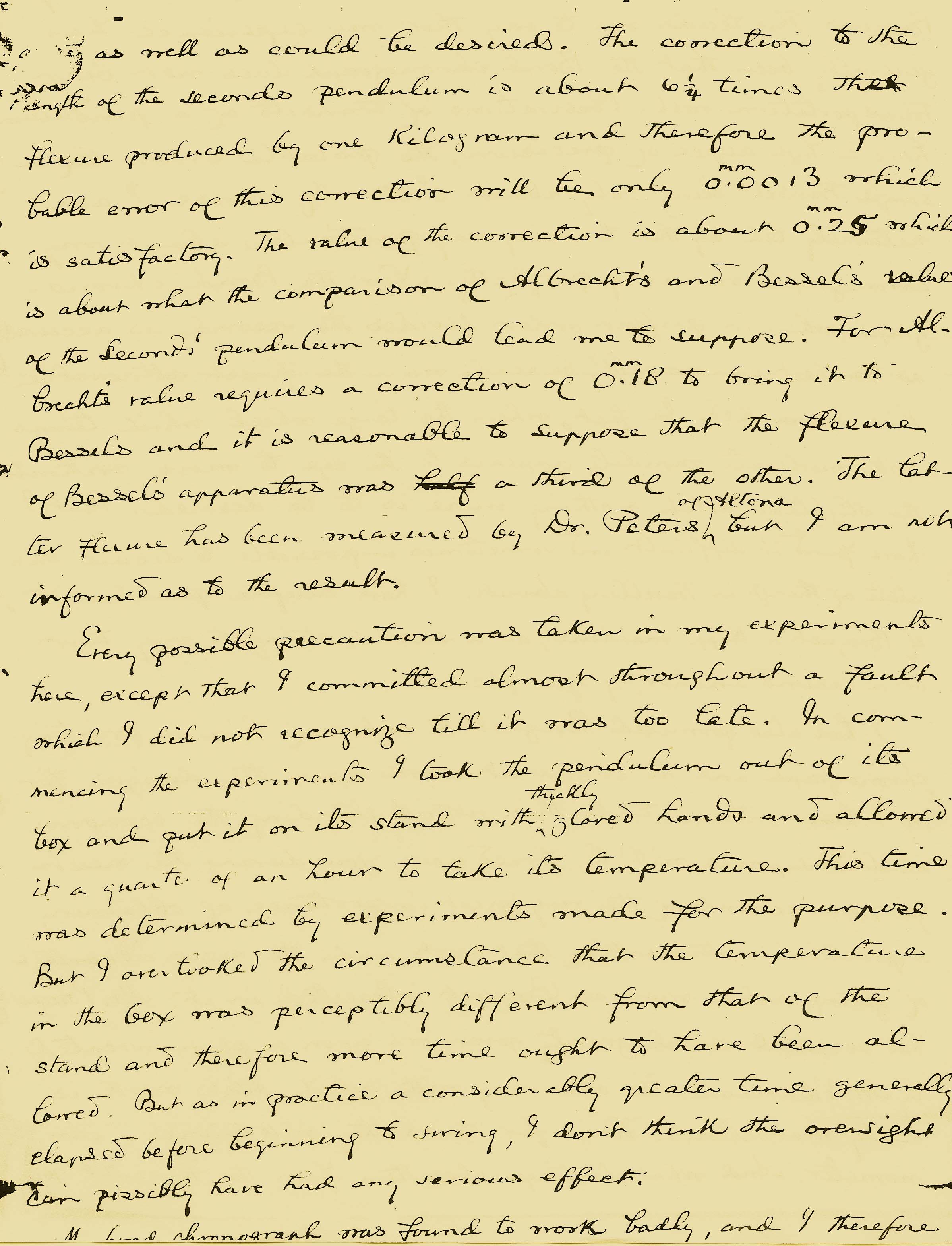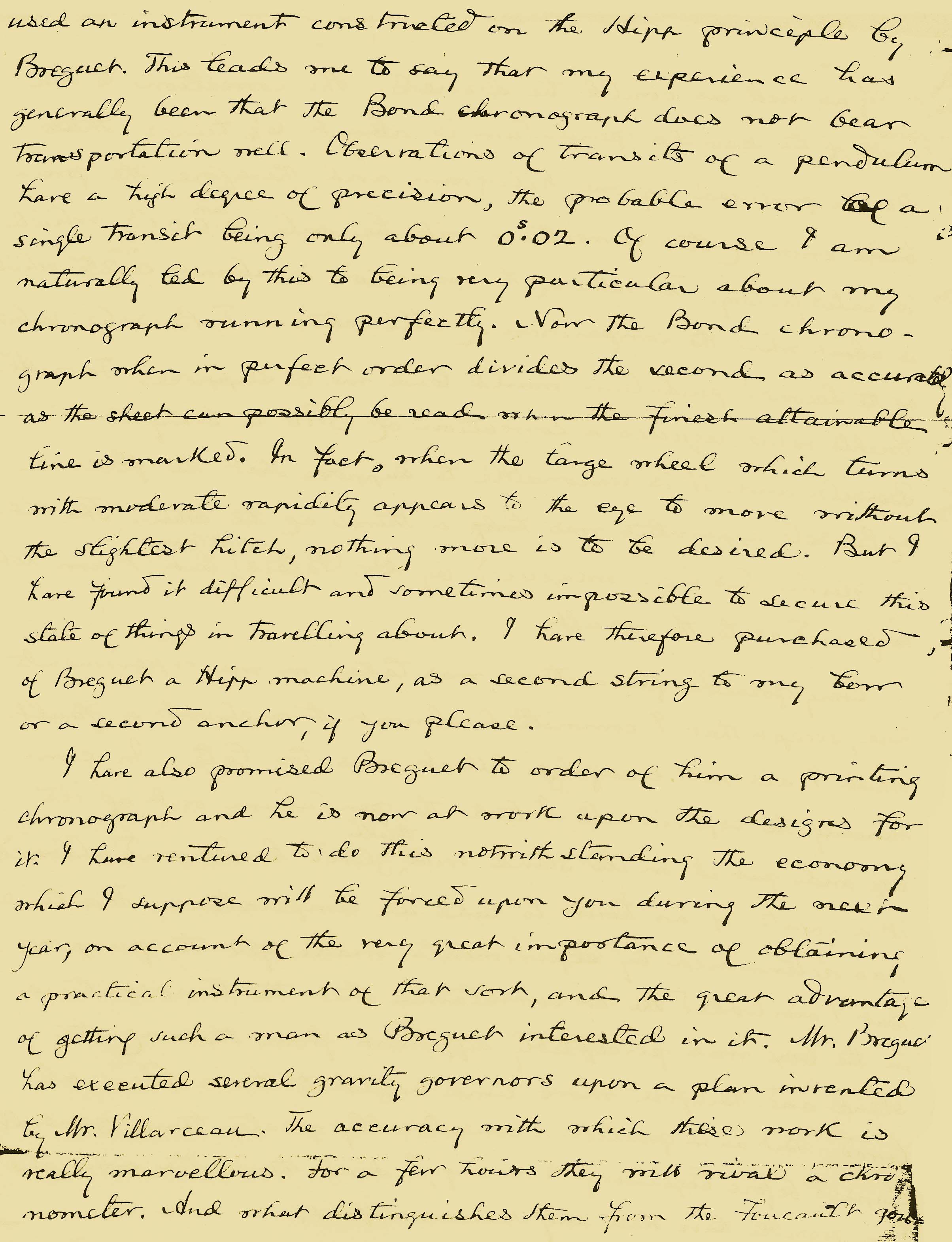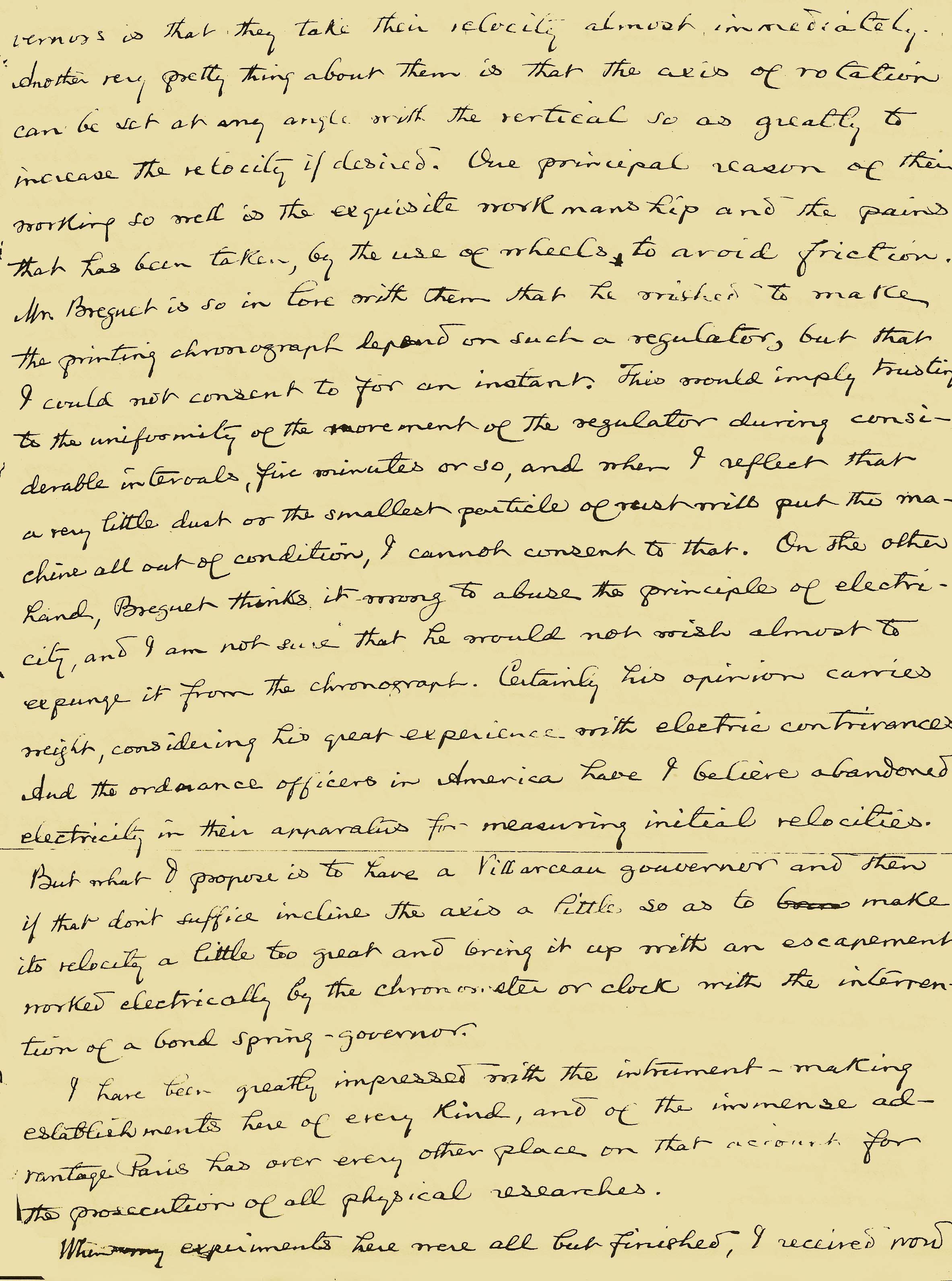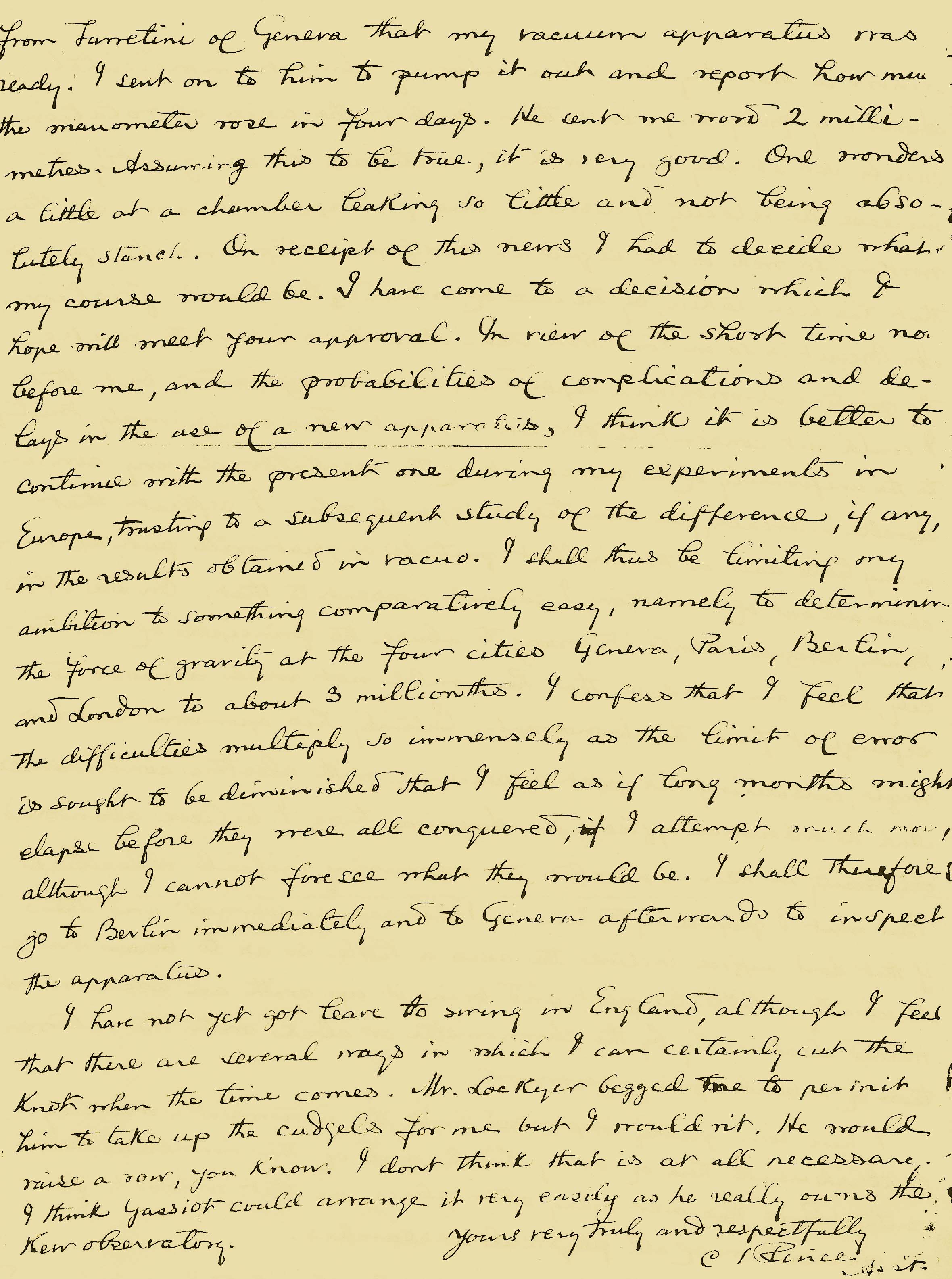
|
from Turretini of Geneva that my vacuum apparatus was ready. I sent on to him to pump it out and report how much the manometer rose in four days. He sent me word 2 millimetres. Assuming this to be true, it is very good. One wonders a little at a chamber leaking so little and not being absolutely stanch. On receipt of this news I had to decide what my course would be. I have come to a decision which I hope will meet your approval. In view of the short time now before me, and the probabilities of complications and delays in the use of a new apparatus, I think it is better to continue with the present one during my experiments in Europe, trusting to a subsequent study of the difference, if any, in the results obtained in vacuo. I shall thus be limiting my ambition to something comparatively easy, namely to determine the force of gravity at the four cities Geneva, Paris, Berlin, and London to about 3 millionths. I confess that I feel that the difficulties multiply so immensely as the limit of error is sought to be diminished that I feel as if long months might elapse before they were all conquered, if I attempt much more, although I cannot foresee what they would be. I shall therefore go to Berlin immediately and to Geneva afterwards to inspect the apparatus.
I have not yet got leave to swing in England, although I feel that there are several ways in which I can certainly cut the knot when the time comes. Mr. Lockyer begged me to permit him to take up the cudgels for me but I wouldn’t. He would raise a row, you know. I don’t think that is at all necessary. I think Gassiot could arrange it very easily as he really owns the Kew observatory.
Yours very truly and respectfully
C. S. Peirce
Assist.
|
